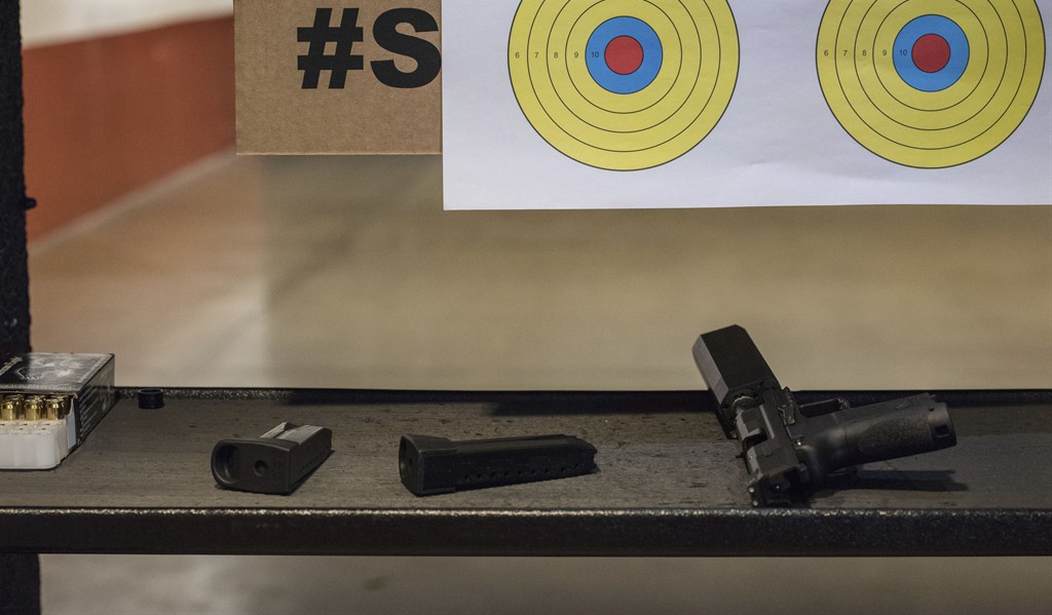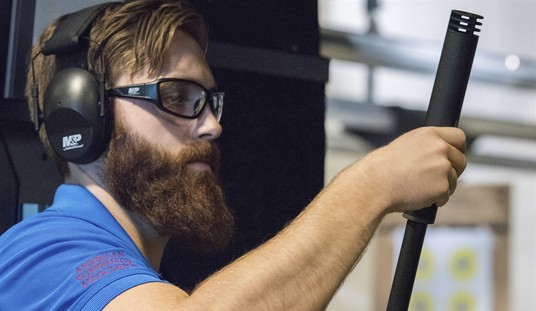AP Photo/Lisa Marie Pane
The discussion of ethics is fascinating. There are some areas where it’s generally pretty cut and dried, at least for most people. You don’t murder others, for example.
But then ethics introduces ideas such as killing baby Hitler, showing that reality can be a bit more complicated than it seems. It’s an interesting topic to delve into, one I hope to spend more time studying at some point.
Unfortunately, it seems some think that our efforts to be prepared to defend ourselves makes us somehow less ethical.
To the extent that the Gun Culture 2.0 instills in people a willingness to kill, it can be harmful to their character.2 My claim is not that owning and using a gun necessarily compromises character. But if one does so, and adopts much of what Gun Culture 2.0 involves, it can have a negative impact. Let’s look at why.
First, a vast majority of us have a deep psychological resistance to killing other people. This is obviously a good feature of human nature. It is grounded in human empathy that recognizes others, including our enemies, as human beings. How we think about, value, and use guns may prevent us from fully appreciating these truths.
One way that this can occur is by dehumanizing our enemies. This dehumanization can then overcome our natural resistance to killing another human being. In military contexts, this can occur in a couple of ways. First, it can be done by conditioning a person to fire a gun at another human being without really thinking about the action that is being performed. This could occur by training soldiers to fire at human-like targets and providing rewards or punishments based on success in such exercises. The hoped-for result is that soldiers will develop quick-shoot reflexes, not thinking about the fact that they are killing another human being at the moment of the conditioned response. This is a sad necessity of war. Many later feel revulsion at what they have done or struggle with it in other ways.
…
But how, in particular, can this harm character? If our resistance to killing others is weakened by conditioning or seeing them as morally inferior, empathy for them is weakened. Many psychological studies show that empathy is connected to altruistic acts and to acts involving helping others. It also plays a role in preventing aggression and violence.
In short, empathy is important for good character. Weakening empathy by dehumanizing others in these ways harms our character. It makes it more difficult to have virtues that are deeply connected with empathy. Compassion, sympathy, and kindness come to mind. If we see others as less than human, this can lead to moral vices, including callousness, cruelty, and malice.
Now, the writer does go on to mention that acting in self-defense isn’t evil or proof you lack character, but the groundwork was already laid.
You see, he’s not really talking about ethics or character.
No, my guess is that he’s trying to stigmatize gun owners, particularly those of us who are most likely to train and prepare for a potentially violent encounter.
By necessity, that training will involve a lot of work designed to speed up our reaction time. If the bad guy has a gun pointed at you, it’s not a good moment to hesitate. Doing so could get you killed, so we train to reduce the likelihood of that moment.
The writer here argues that we are potentially damaging our character because of this training. Nevermind that he provides not a single example of anyone who had engaged in such training lacking character. Nevermind that he presents no study showing a lack of empathy for others by those who have undergone this training either.
The truth is that gun owners tend to be empathetic, at least to some degree. Most of us don’t let our empathy dictate our politics, but we feel for others and do so all the time. There’s a reason that most pro-gun folks I know are involved in some charitable causes and it’s the reason so many pro-gun people bend over backward to help their friends out. It’s because they have empathy.
But the writer doesn’t give a damn about that.
This is activism masquerading as a discussion of ethics in Psychology Today. It’s an individual who is taking one aspect of training, the effort to speed up reaction time and to remove the hesitation that can get you killed before you act, and using it to justify labeling us as lacking in character. It’s not science. It’s not scholarship. It’s an attack on who we are as individuals.
I train to react quickly because the chances are good that my family will be with me, and I’ll be damned if I let something happen to them. I failed to act against violence once in my life, a minor altercation that left no one injured but was still violent, and it haunted me for the rest of my life. My empathy for the victim was very real, and so I train to make damn sure it never happens again. If it does, it won’t be because I failed to act. It’ll be because I’m dead.
Most of Gun Culture 2.0 are people who are inclined to protect the lives of others as well.
I hate to break it to the writer here, but that’s an inherently empathetic act. It’s an altruistic act as well, as someone is risking their life for another. They don’t want to live with the guilt I do from not acting that one time.
Maybe next time, the author will learn about the culture in question from more than reading a few internet posts before offering his opinion on our ethical standing.
Then again, if your goal is to stigmatize gun owners, why would you bother?








Join the conversation as a VIP Member